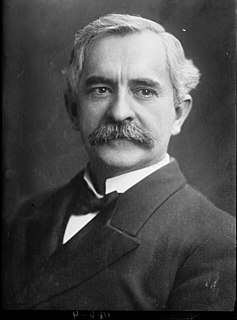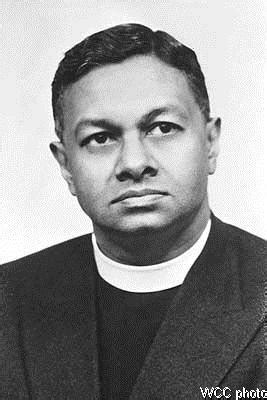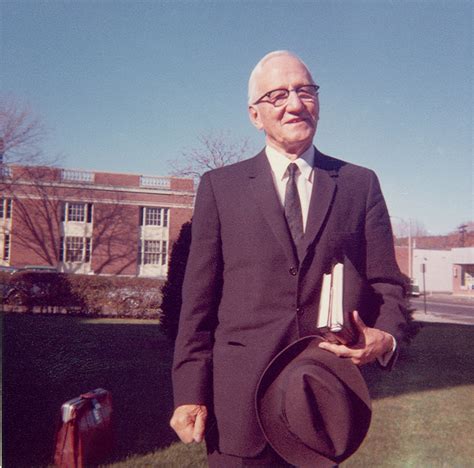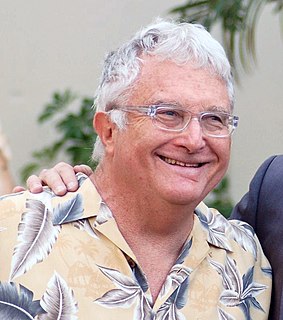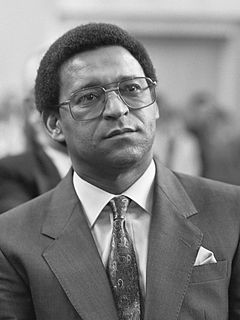A Quote by Rich Mullins
I think I would rather live on the verge of falling and let my security be in the all-sufficiency of the grace of God than to live in some pietistic illusion of moral excellence. Not that I don't want to be morally excellent but my faith isn't in the idea that I'm more moral than anybody else. My faith is in the idea that God and His love are greater than whatever sins any of us commit.
Related Quotes
We need a quickening of faith; faith in the power of the God of Pentecost to convict and convert three thousand in a day. Faith, not in a process of culture by which we hope to train children into a state of salvation, but faith in the mighty God who can quicken a dead soul into life in a moment; faith in moral and spiritual revolution rather than evolution.
There is nothing more important in my life than my relationship with God and my faith. I have been so driven to my knees to pray for His guidance, for His wisdom, for His grace and for His Strength. I'm never going to tell anybody else how to live, I'm never going to preach to anybody else and tell them you must do that. But I sure would like to see more Americans give it a try and seek the guidance that our Founding Fathers sought and were able to [then] craft documents that allowed America to become the greatest, strongest, healthiest, most prosperous nation on earth.
Faith, then, generically, is confidence in a personal being. Specifically, religious faith is confidence in God, in every respect and office in which He reveals Himself. As that love of which God is the object is religious love, so that confidence in Him as a Father, a Moral Governor, a Redeemer, a Sanctifier, in all the modes of His manifestation, by which we believe whatever He says because He says it, and commit ourselves and all our interests cheerfully and entirely into His hands, is religious faith.
At the heart of our public morality is the idea that he who gives generously is most virtuous and morally praiseworthy; that there is no greater citizen than she who sacrifices; and that there is no greater measure of worth than contribution. These are values we can be proud of. After all, there is no moral system or religion on earth where the guiding ethic is grab more for yourself.
Faith means the fundamental response to the love that has offered itself up for me. It thus becomes clear that faith is ordered primarily to the inconceivability of God's love, which surpasses us and anticipates us. Love alone is credible; nothing else can be believed, and nothing else ought to be believed. This is the achievement, the 'work' of faith: to recognize this absolute prius, which nothing else can surpass; to believe that there is such a thing as love, absolute love, and that there is nothing higher or greater than it.
Some people may complicate it for you, but the formula is simple: Love God more than anything else. More than your ego. More than your money. More than your desires...More than your sleep at dawn. Love God more than anything else, and submission comes natural.
Love God more than anything else, and all goodness will follow.
Look at Satan's reason for rebelling against God. It's not that he doesn't recognize that God is greater than he is. He does. It's just that he doesn't want to play by anybody else's rules. This idea that it is better to reign in hell than to serve in heaven is Satan's motto, and it turns out that this is also the motto of contemporary atheists such as Christopher Hitchens.
In the beginning was belief, foolish belief, and faith, empty faith, and illusion, the terrible illusion. ... We believed in God, had faith in man, and lived with the illusion that in each one of us is a sacred spark from the fire of the shekinah, that each one carried in his eyes and in his soul the sign of God. This was the source—if not the cause—of all our misfortune.
The chief difficulty is that God demands of us that we live by faith: faith in God, God's sovereignty over the future, God's sufficiency for the present; while, on the other hand, the various other gods whom we can serve appeal to us in terms of the things which we can see and the forces which we can calculate. The choice between the life of faith and the life of sight is a choice between a God whom only faith can apprehend and gods whom one has only to see to understand.
A Johns Hopkins doctor says that 'we do not know why it is that the worriers die sooner than the non-worriers, but that is a fact.' But I, who am simple of mind, think I know we are inwardly constructed, in nerve and tissue and brain cell and soul, for faith and not for fear. God made us that way. Therefore, the need of faith is not something imposed on us dogmatically, but it is written in us intrinsically. We cannot live without it. To live by worry is to live against Reality.
But, today, the idea of faith returns to me. Faith defies logic and propels us beyond hope because it is not attached to our desires. Faith is the centerpiece of a connected life. It allows us to live by the grace of invisible strands. It is a belief in a wisdom superior to our own. Faith becomes a teacher in the absence of fact.
When a plane crashes and some die while others live, a skeptic calls into question God's moral character, saying that he has chosen some to live and others to die on a whim; yet you say it is your moral right to choose whether the child within you should live or die. Does that not sound odd to you? When God decides who should live or die, he is immoral. When you decide who should live or die, it's your moral right.

